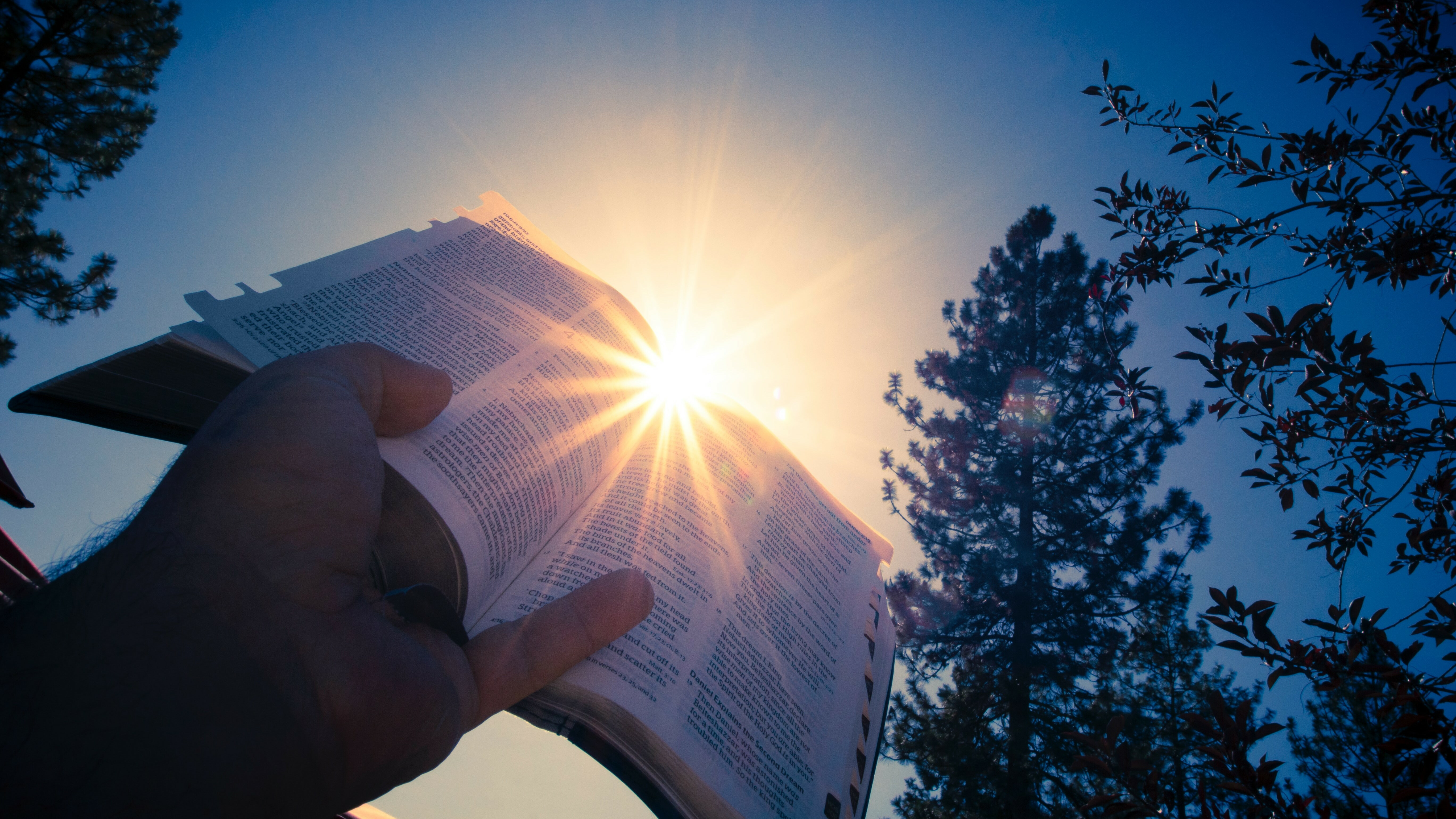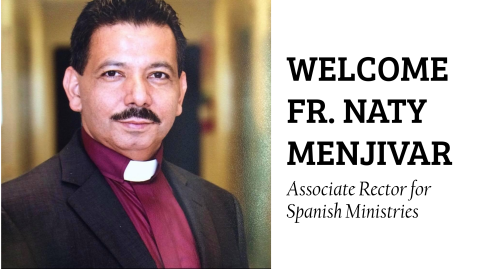TLDR: Last Sunday we read a depressing passage from Ecclesiastes: “Life is nothing but smoke!” When you understand this brilliant passage in context, you find surprising Good News. Enjoy![1]
We read a rather depressing little passage from the Old Testament this last Sunday, and no one I know preached on it, which is completely understandable. As I left church, I kept thinking, “What are Christians who believe in the Good News of Jesus to do about these passages?” In other words, Ecclesiastes challenges the way we look at life, as it declares that everything under the sun is futile, vanity, and complete smoke. How can we find the good news in these rather depressing words? Please hang with me as I attempt to look for good news in this passage. First, let me introduce you to the book and to Wisdom literature of which it is a part.
The first thing to notice is that there are two primary voices in Ecclesiastes: The narrator, who is the final author or redactor of this composition, and “Kohelet,” which literally means “The gatherer of people” and which is often translated as “The Teacher, the preacher, the presider, the leader, the critic, etc.” Ecclesiastes is part of the wisdom literature of Israel, composed of Proverbs, Ecclesiastes, and Job. The author of the book is often associated with King Solomon (because he presents himself as a king,) or a more distant descendant of David, or someone who writes in the style of the Wisdom literature. The author wants us to see “The Teacher” voice as a character of his book. He introduces the words of the Teacher at the start of the book and summarizes them at the end for us. As part of the wisdom, the book is asking the same question the other two books ask: What does it mean to lead a good life in this world (under the sun)?
Ecclesiastes 1:2, 12-14; 2:18-23 (The O.T. lesson for Track Two of the Revised Common Lectionary for Proper 13) starts the following way: “Vanity of vanities, says the Teacher, vanity of vanities! All is vanity…” The Bible Project calls the teacher, “A sharp, middle-aged, critic.” He challenges the premise of Proverbs that the use of wisdom is all a person needs to lead a successful life. He believes that life under the sun is like smoke, or what he calls “Hevel,” a puff, utterly vapor. This is an important metaphor that is often misunderstood for “meaningless.” But the Teacher is not telling us that life is meaningless but that “like smoke, life is beautiful and mysterious. It takes one shape, but before you know it, it takes another shape. And smoke looks solid but try to grab it and it will slip right through your fingers. And when you are stuck in the thick of it like fog, it’s impossible to see clearly.” (Bible Project.) The Teacher uses three arguments to illustrate how life is utterly futile, like smoke: the first is the inevitability of time. Time marches on regardless of humanity, “Generations come and generations go, but the earth remains forever.” (1:4). The earth has been here before us and it will be here long after we are gone, and no one will remember us. None of us remember people who existed a hundred or two hundred years ago, and likewise, no one will remember us a hundred years from now. Our universe expands every second, stars die and are born every day, galaxies are formed and others die, creating a living organism of billions of planets, solar systems, and galaxies. Compared to this universe, our lives are but a whisper in the dark, a gentle puff of air, “Hevel!”
The second proof that our life under the sun is utterly like smoke is the fact that we are all going to die. We are all destined for death, both rich and poor, wise and foolish, good and evil, faithful and pagan, young and old. Don’t assume that the righteous will live longer. Don’t assume that those who go to church and offer sacrifices will live longer. Don’t assume that those who are evil are destined for death sooner than those who are righteous. All of these assumptions are faulty. Death is the great equalizer, an inevitable reality in our life. Not one penny of our fortunes will help us extend our lives even one second beyond our appointed time. Much of what we do to extend life, or to forget about death, is nothing but foolishness and vanity. Look at our tendency to equate happiness with possessions. We build, work, save, plan, and deprive ourselves to prepare for a time of leisure at a later time (“retirement.”) This type of thinking is based on the idea that those who have more are happier than those who have less, and that happiness can be found in the accumulation of wealth and goods. (Think of the man in our parable this last Sunday.) But death can visit any of us at any point, and everything we have worked so hard to build will be left to others to enjoy, whether deserving or not, wise or foolish, industrious or lazy.
The third proof that life under the sun is smoke is random nature. We all want to believe that life is predictable and that good actions are always met by good results, and evil actions are met by evil results. But life is truly random. “The race doesn’t always favor the swift, nor the battle the strong, nor bread the wise, nor riches the intelligent, nor favor the skillful; but time and chance happen to them all. For no one can anticipate the time of disaster… when it suddenly falls upon them.” (9:11-12.) You can’t really control anything in life. Our futile attempts to be in control are nothing but vanity. Control doesn’t really exist in a random universe. Intransigence and a fixed mind betray the fact that life is always fluid, random, and changing. A million cities may come and go, but the mountains that have been above them for millennia don’t care. The mountains know that life is random and transitory.
The author of Ecclesiastes is not concerned with answering the question about the existence of God, he is not teaching a better way to live according to the Law, he is not interested in presenting an argument in favor of a particular philosopher, prophet, or doctrine, and he is not necessarily interested in the covenants. He is presenting observable facts we all know to ask the question, “Does God matter?” When life on this earth is but a whisper (time) which is bound to end as it does for all (death,) and this end can take place at a moment’s notice (randomness of nature,) the believer has no choice but to rest in God and trust in him. We need to trust God because we don’t have the answers to life’s deep questions, because the materialistic answers to our quest for purpose (wealth, possessions, sex, power, fame, achievement…) are insufficient to help us achieve true happiness, and because history itself is an unreliable witness in our attempt to understand our world and our place in it. We need God because control is nothing but a myth, and without God, life itself becomes the greatest vanity (vanity of vanities.) Without God every aspect of life suffers from the same lack of consequence and the same non-eternal nature that renders it all unimportant and ephemeral.
So, what is the answer? How do we live a happy life in this confusing and uncontrollable world? Surprisingly, the Teacher agrees with Proverbs that we should learn wisdom and live in the fear of the Lord. The most important point, however, is that “since you can’t control your life, you should stop trying. Learn to hold things with an open hand because you really only have control over one thing and that is your attitude towards the present moment. Stop worrying and choose to enjoy a good conversation with a friend, or the sun on your face, or a good meal with people you care about. The simple things in life, and both the good things and the bad things, because both are rich gifts from God.” (Bible Project.)
After the Teacher is done with his message, the narrator returns to the book to add a more hopeful perspective and to end his book with a more positive view of life. He says, “The end of the matter… Fear God, and keep his commandments; for that is the whole duty of everyone. For God will bring every deed into judgement, including every secret thing, whether good or evil.” (12:13.) God is in control of our life and of our future. One day, God will clear all the smoke of our lives, all the pain of our existence, all our heartache and anxiety, and all our powerlessness. God will right the crooked paths and clothe his creation with imperishability. For now we walk through the fog and the smoke, but God will soon enough clear the smoke from our eyes that we may see him face to face. We, Christians, who live thousands of years after Koheleh, understand that although there is little control in our lives, God, through his Son, Jesus Christ, will right all the wrongs in our world and will bring us safely to himself in due time. Until then, we are called by the narrator to action. “Get busy: Fear the Lord (Obey, respect, serve, devote yourself to…) and keep the commandments (summarized in the twin commands to Love God and love others.)” Everything else belongs to God.
Abandon yourself to God’s love and care, and rest easy in the belief that one day all the smoke will be cleared and we will see each other face to face, just as God sees us face to face.
Blessings to all,
Fr. Roman+
[1] I have found two brief commentaries on Ecclesiastes very helpful. I hope you enjoy them:
The Bible Project: https://www.youtube.com/watch?v=lrsQ1tc-2wk
Enduring Word Commentary: https://enduringword.com/bible-commentary/ecclesiastes-1/





